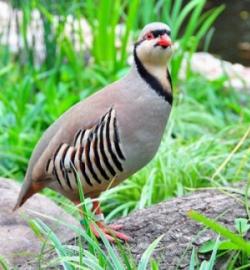Independence Day (Urdu: یوم آزادی; Yaum-e Āzādī), observed annually on 14 August, is a national holiday in Pakistan. It commemorates the day when Pakistan achieved independence and was declared
Allama Iqbal (Shair-e-Mashriq)

Allama Iqbal (علامہ اِقبال) (November 9, 1877 – April 21, 1938), widely known as Muhammad Iqbal, was a poet, philosopher, and politician, as well as an academic, barrister and scholar[1][2] in British India who is widely regarded as having inspired the Pakistan Movement. He is called the "Spiritual Father of Pakistan " [3] He is considered one of the most important figures in Urdu literature,[4] with literary work in both Urdu and Persian.[2][4]
Iqbal is admired as a prominent poet by Pakistanis, Iranians and other international scholars of literature.[5][6][7] Though Iqbal is best known as an eminent poet, he is also a highly acclaimed "Muslim philosophical thinker of modern times".[2][7] His first poetry book, The Secrets of the Self, appeared in the Persian language in 1915, and other books of poetry include The Secrets of Selflessness, Message from the East and Persian Psalms. Amongst these, his best known Urdu works are The Call of the Marching Bell, Gabriel's Wing, The Rod of Moses and a part of Gift from Hijaz.[8] Along with his Urdu and Persian poetry, his Urdu and English lectures and letters have been very influential in cultural, social, religious and political disputes.[8]
In 1922, he was knighted by King George V,[9] granting him the title "Sir".[10] While studying law and philosophy in England, Iqbal became a member of the London branch of the All-India Muslim League.[7][8] Later, during the League's December 1930 session, he delivered his most famous presidential speech known as the Allahabad Address in which he pushed for the creation of a Muslim state in northwest India.[7][8]
In much of South Asia and the Urdu speaking world, Iqbal is regarded as the Shair-e-Mashriq (Urdu: شاعر مشرق, "Poet of the East").[11][12][13] He is also called Mufakkir-e-Pakistan (Urdu: مفکر پاکستان, "The Thinker of Pakistan"), Musawar-e-Pakistan (Urdu: مصور پاکستان, "Artist of Pakistan") and Hakeem-ul-Ummat (Urdu: حکیم الامت, "The Sage of the Ummah"). The Pakistan government officially named him "National Poet of Pakistan".[7] His birthday Yōm-e Welādat-e Muḥammad Iqbāl (Urdu: یوم ولادت محمد اقبال), or Iqbal Day, is a public holiday in Pakistan.[14]
Sir Muhammad Iqbal's house is still located in Sialkot and is recognized as Iqbal's Manzil and is open for visitors
About Pakistan
-

-

Muhammad Ali Jinnah (born Mahomedali Jinnahbhai; 25 December 1876 – 11 September 1948) was a lawyer, politician, and the founder of Pakistan.[1] Jinnah served as leader of the All-India Muslim
-

Allama Iqbal (علامہ اِقبال) (November 9, 1877 – April 21, 1938), widely known as Muhammad Iqbal, was a poet, philosopher, and politician, as well as an academic, barrister and scholar[1][2] in
-

Pakistan is one of nearly 200 countries illustrated on our Blue Ocean Laminated Map of the World. This map shows a combination of political and physical features. It includes country boundaries,
-

The Qaumi Taranah (Urdu: قومی ترانہ, Qaumī Tarānah pronounced [ˈqɔː.mi ˈt̪ə.rɑː.nɑ], lit. “National Anthem”), also known as Pāk Sarzamīn (Urdu: پاک سرزمین, pronounced [ˈpɑːk ˈsər.zə.miːn], lit
-

The salwar kameez is the national dress of Pakistan[1][2] and is worn by men and women in all four provinces Punjab, Sindh, Baluchistan and Khyber Pakhtunkhwa in the country and in Azad Kashmir.
-

For thousands of years, the jasmine plant has been cultivated not only for the beauty of its small, white, star-like flowers, but it has also been prized for its intoxicating scent. Originating in
-

Cedrus deodara (deodar cedar, Himalayan cedar, or deodar/devdar/devadar/devadaru; Urdu: ديودار deodār/devdār; Punjabi: دیار is a species of cedar native to the western Himalayas in eastern
-

The markhor (Capra falconeri; Pashto: مرغومی marǧūmi; Persian/Urdu: مارخور), also known as the screw horn goat, is a large species of wild goat that is found in northeastern Afghanistan,
-

The chukar partridge or chukar (Alectoris chukar) is a Eurasian upland gamebird in the pheasant family Phasianidae. It has been considered to form a superspecies complex along with the rock
-

Urdu (اردو) is the national language (قومی زبان), lingua franca and one of two official languages of Pakistan (the other currently being English). Although only about 8% of Pakistanis speak it
-

Field Hockey is the national game of Pakistan and wearing green shirts represent the Pakistan Hockey Federation in international field hockey competitions. Even though field hockey is the
-

The Nishan-i-Haider (Urdu: نشان حیدر meaning "Order of the Lion") is the Highest' military award given by Pakistan. Awarded "to those who have performed acts of greatest heroism or most
-

The Hilal-i-Jur'at (Urdu: ہلال جرات [ɦəˈlaːl ə dʒʊˈraːt̪], as if it were Halāl-e-Jurāt; English: Crescent of Courage , sometimes spelled as Hilal-e-Jur'at, Hilal-e-Jurat, Hilal-i-Jurrat and
-

Sitara-e-Jurat (Star of Courage) is the third highest military award of Pakistan. It was established in 1957 after Pakistan became a Republic; however, it was instituted retrospectively back to
-

Sitara-e-Basalat (Star of Good Conduct) is a non-operational award of Pakistan Armed Forces given to individuals for distinguished acts of gallantry, valor or courage while performing their duty.[
